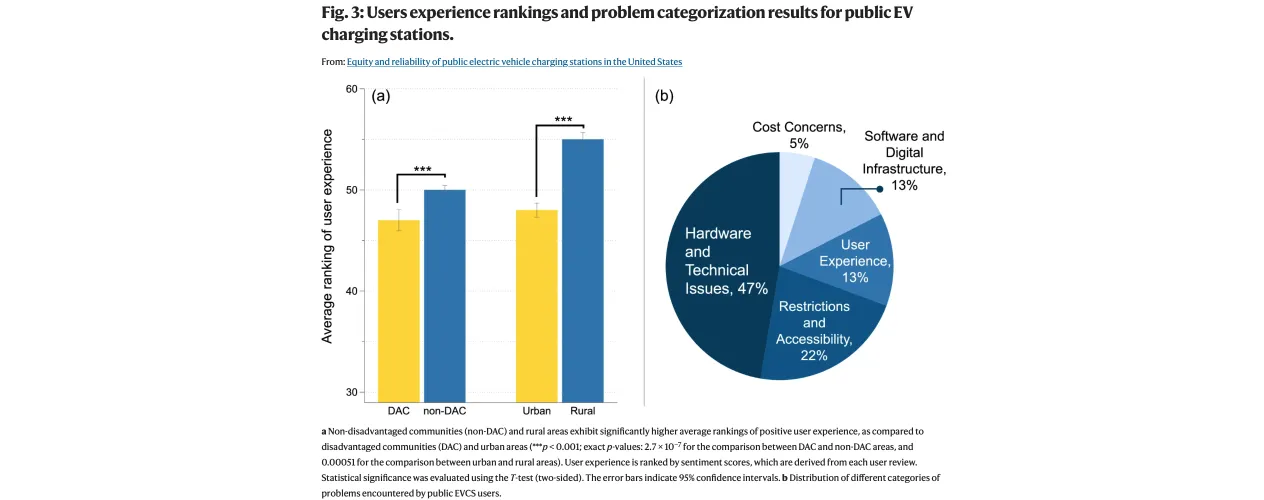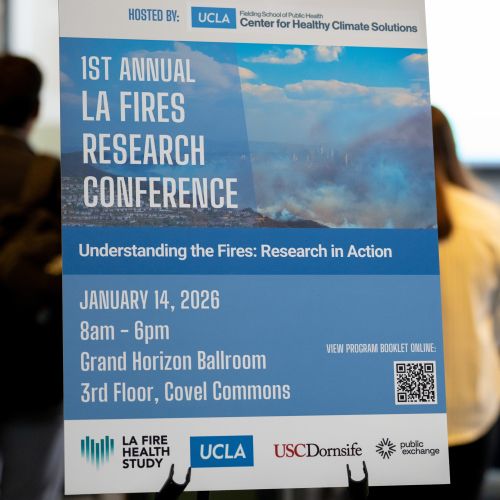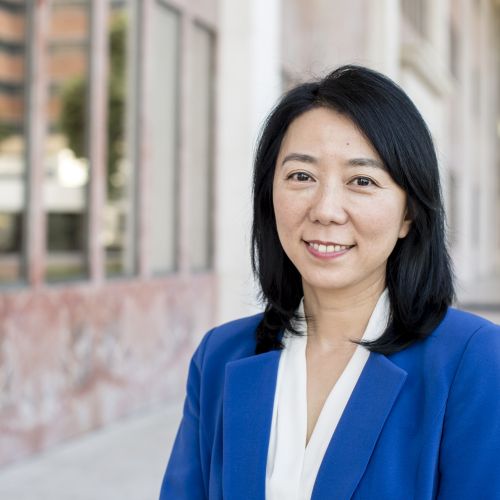UCLA-led team's research reveals stark inequities in EV charger access
UCLA Fielding School of Public Health researchers have found the distribution and reliability of electric vehicle charging stations vary widely.

A team led by UCLA Fielding School of Public Health researchers has found that both the distribution and reliability of electric vehicle charging stations (EVCSs) are extremely unequal in the U.S., with renters in disadvantaged communities experiencing the greatest gaps in access and service.
The peer-reviewed study - "Equity and reliability of public electric vehicle charging stations in the United States" - was published in the June edition of the journal Nature Communications, and found stark inequities in EV charger access. Disadvantaged communities had 64% fewer public EVCSs per capita within a 3-mile radius than more affluent areas. The disparity was even greater for renters in multifamily housing, who had access to 73% fewer chargers per capita relative to those in wealthier neighborhoods.
Researchers from UCLA - including Dr. Yifang Zhu and Dr. Lara Cushing, both professors in the UCLA Fielding School of Public Health's Department of Environmental Health Sciences - and USC analyzed more than 470,000 EVCS online user reviews alongside charger location data from the U.S. Department of Energy to map network coverage and assess user experience. There are 55,000 public chargers in the continental U.S., but only 37,000 are fully accessible, the research found.
Innovative research methods were essential for quickly and strategically analyzing the massive data set.
“We used AI to quickly analyze half a million user reviews, combined with mapping tools, to pinpoint where chargers are failing and who’s being left out,” said lead author Dr. Qiao Yu, a postdoctoral researcher at the UCLA Fielding School.
Beyond gaps in coverage, the study also revealed inequities in user experience and service reliability.
“EV chargers aren’t just missing in disadvantaged communities — they’re also more likely to be broken. That’s a double barrier for people who can’t charge at home,” Zhu said.
User reviews pointed to frequent problems, like incorrect charging availability information, slow charging speeds, and long wait times — all issues that were more common in lower-income areas. Disparities in user experience were also present between urban and rural users, with urban users more likely to have more negative user reviews.
Addressing common user experience challenges is a critical element to scaling up EV adoption. If charging is inconsistent or inconvenient, drivers may be discouraged from switching to EVs — or may revert to gas-powered vehicles.
To support a more just transition to a carbon-free future, the researchers emphasize a need for smarter investment in charging infrastructure that addresses both access and reliability. This includes expanding fast-charging stations in underserved areas, improving charger maintenance through sustained funding, and adopting policies that lower financial barriers for lower-income communities.
Read the UCLA ITS release.

